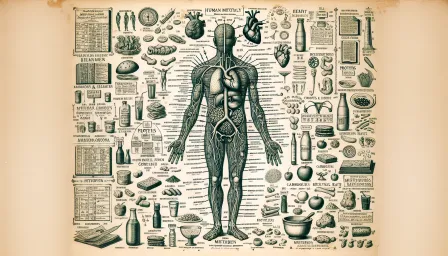Mediterranean Diet and Heart Health: A Delicious Path to Wellness

Discover how the Mediterranean diet supports heart health, offering a delicious and sustainable path to wellness.
The Mediterranean diet has long been touted for its numerous health benefits, particularly in promoting heart health. Combining elements of traditional eating habits from countries bordering the Mediterranean Sea, this diet is rich in fruits, vegetables, whole grains, fish, and healthy fats. In this article, we will explore the relationship between the Mediterranean diet and heart health, providing you with comprehensive insights into why this diet might be a perfect choice for your cardiovascular well-being.
What is the Mediterranean Diet?
The Mediterranean diet is a nutritional model that emphasizes whole, minimally processed foods native to the countries surrounding the Mediterranean Sea. It is characterized by high consumption of:
- Fruits and vegetables
- Whole grains
- Legumes and nuts
- Olive oil as the primary source of fat
- Fish and seafood
- Moderate consumption of dairy products and poultry
- Red wine in moderation
These components collectively offer a balanced and delicious approach to eating, contributing to numerous health benefits.
How the Mediterranean Diet Supports Heart Health
The Mediterranean diet supports heart health through multiple mechanisms, backed by scientific research. Let's break down the key factors that make this diet heart-friendly:
Rich in Healthy Fats
One of the main features of the Mediterranean diet is its high content of healthy fats, primarily from olive oil, nuts, and fish. These sources of monounsaturated and polyunsaturated fats help reduce LDL cholesterol, commonly known as "bad" cholesterol, while maintaining levels of HDL cholesterol, or "good" cholesterol. This balance is crucial for cardiovascular health.
High in Antioxidants
Fruits, vegetables, and nuts, staples of the Mediterranean diet, are rich in antioxidants like vitamins C and E, polyphenols, and flavonoids. These compounds help combat oxidative stress and inflammation, both of which are risk factors for heart disease.
Fiber-Rich Foods
Whole grains, legumes, fruits, and vegetables provide ample dietary fiber. Fiber aids in reducing cholesterol levels, regulating blood sugar, and promoting overall cardiovascular health.
Omega-3 Fatty Acids
Fish and seafood, integral parts of the Mediterranean diet, are excellent sources of omega-3 fatty acids. Omega-3s have been shown to reduce inflammation, lower blood pressure, and decrease the risk of arrhythmias.
Low in Red Meat
The Mediterranean diet emphasizes fish and poultry over red meat, which is typically consumed in small quantities. This reduces the intake of saturated fats and cholesterol, both of which are linked to heart disease.
Scientific Evidence Supporting the Mediterranean Diet
Numerous studies underscore the benefits of the Mediterranean diet for heart health. Key research findings include:
- A study published in the New England Journal of Medicine found that individuals following a Mediterranean diet had a 30% lower risk of heart attack, stroke, and cardiovascular-related death compared to those following a low-fat diet.
- Research in the journal Circulation Research revealed that high adherence to the Mediterranean diet is associated with a lower incidence of coronary artery disease.
- Studies have also shown that the Mediterranean diet can help reduce blood pressure, improve lipid profiles, and decrease systemic inflammation, all of which contribute to heart health.
Incorporating the Mediterranean Diet into Your Lifestyle
Transitioning to a Mediterranean diet can be a seamless and enjoyable process. Here are some practical tips to help you get started:
Choose Whole Foods
Opt for fresh, minimally processed foods. Fill your plate with a variety of colorful fruits and vegetables, whole grains, legumes, and nuts.
Use Healthy Fats
Replace butter and margarine with olive oil for cooking and dressings. Incorporate nuts and seeds into your meals and snacks.
Eat More Fish
Include fish in your diet at least twice a week. Salmon, mackerel, sardines, and trout are excellent choices rich in omega-3 fatty acids.
Limit Red Meat
Reduce your red meat intake and choose lean poultry or plant-based protein sources like beans and lentils more often.
Enjoy Meals with Others
One of the fundamental aspects of the Mediterranean lifestyle is enjoying meals with family and friends, fostering social connections and mindful eating.
Conclusion
The Mediterranean diet offers a delicious and sustainable approach to promoting heart health. With its emphasis on whole, nutrient-dense foods and healthy fats, this diet has been shown to reduce the risk of cardiovascular diseases significantly. By incorporating the Mediterranean diet into your lifestyle, you can embark on a path to better heart health and overall well-being.



























